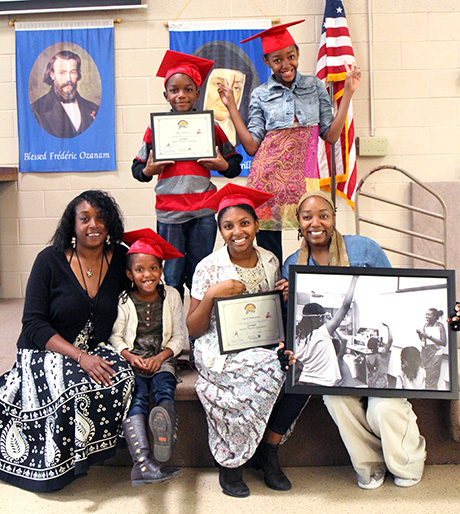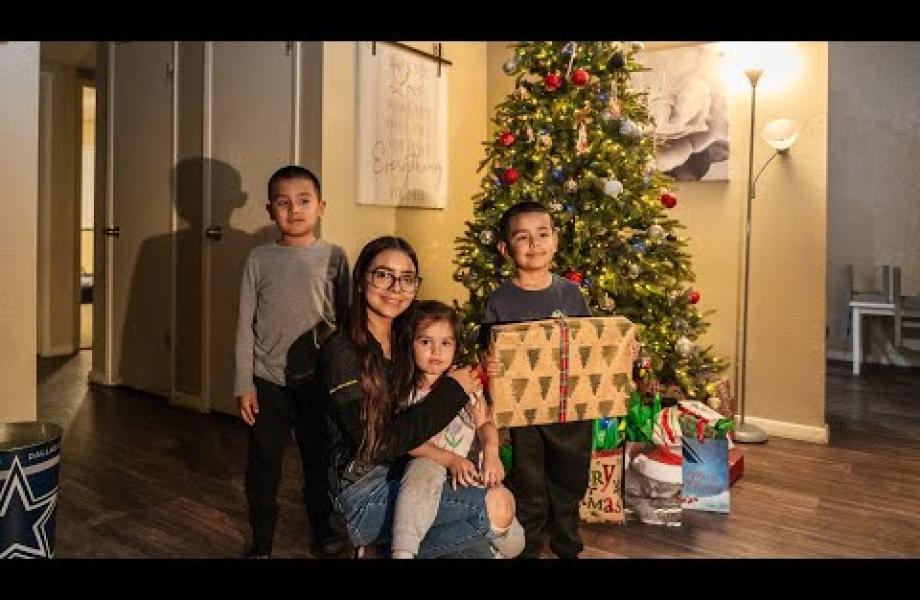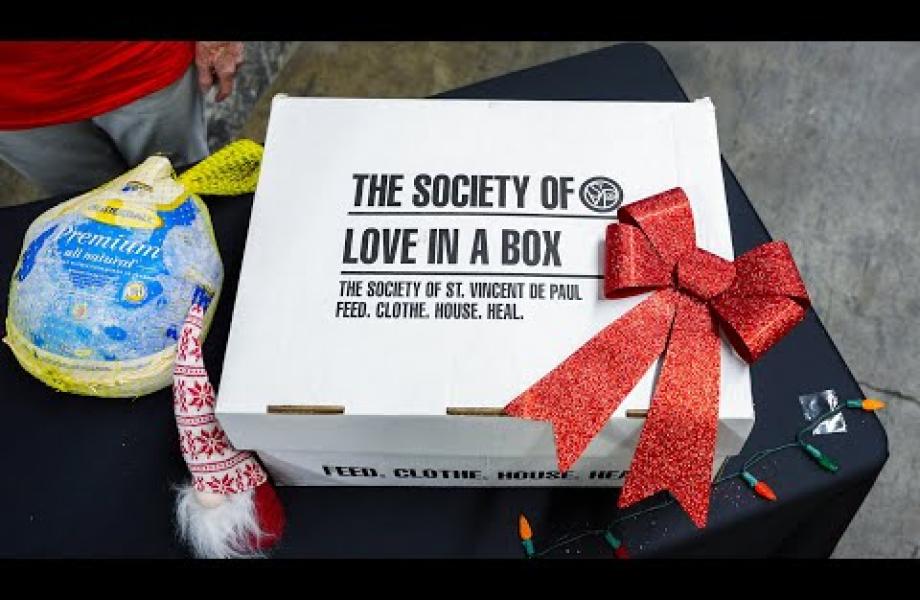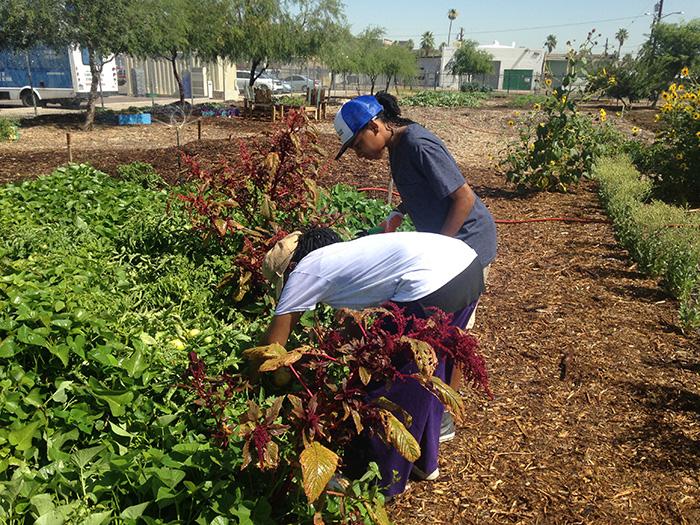
Phoenix Youth Plant Seeds of Change
Almost one year ago, Asiyah, homeschooling mother of four, took her children on a field trip to visit St. Vincent de Paul’s Urban Farm located next to the downtown Phoenix dining room. What she didn’t anticipate was how this small plot of land that grows food to feed those in need, would greatly impact the lives of her children.
After speaking with the farm’s manager, Chanika Forte, Asiyah asked if she could bring her children, ranging in ages 9 to 14, to the farm as a part of their science program for school.
Chanika instantly loved the idea.
However, an educational farming program did not exist at the time. So, she began to research and reach out to local partners to find out how she could make this a reality.
She didn’t have to look far. Staff members at University of Arizona’s Cooperative Extension, where individuals can obtain a Master Gardener certification, were so excited about Chanika’s plans, they donated the Junior Master Gardner curriculum and books to SVdP.
“I love teaching,” says Chanika, “My mother and father are both educators and I spent many years doing volunteer work in my Mom’s classrooms. I learned everything about structuring lesson plans and creating activities for kids.”
Chanika started the official program in July and registered Asiyah’s children online to receive credit from the Department of Education.
The classes were held every other Friday from 9 am to 12:30 pm. Selah, Serenity, Sahar and Saitara spent the first hour and half outside learning how to plant, harvest, and compost. The second half was spent in the classroom, learning more about the outdoor activity they had just completed.
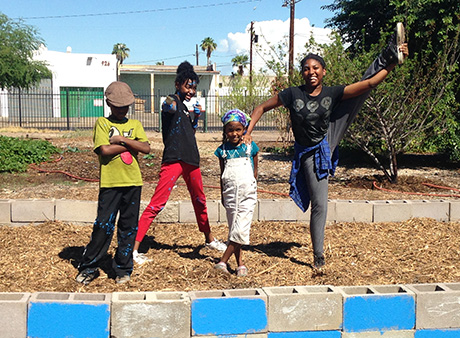
“My mom’s whole purpose of bringing us here to volunteer was to expand our mind about food,” says Serenity, 13. “I loved this class so much because it made me look at food differently.”
After going to several classes in the farm, Serenity and her siblings started a new garden at home, where they are currently growing pumpkins, tomatoes, garlic and carrots.
“Me and my sister, Selah, love to bake. But now, instead of buying premade ingredients with preservatives, we grow our own pumpkins to make pumpkin pie,” she says.
“Harvesting is my favorite part of gardening. Most people think it’s the easiest part, but it really takes a lot of focus and concentration. You have to pay attention to what you’re doing and not harvest before the plants are ready. I also love that the food we harvest is for salads and meals that are served every day to people in the dining room.”
Other lessons the children have learned over the last several months include:
- Composting – how to compost, the importance of it, and how you can encourage your friends and families to recycle and reduce waste
- Soil building – how to build soil with compost, soil content and determining good soil versus bad soil
- Food miles – learning about the distance it takes for food to travel from the farm to your plate and how you can reduce food miles to get more nutrition from food
- Healthy eating – learning how to choose and eat healthy food options
- Watering – water scheduling and the importance of watering in a farm or garden
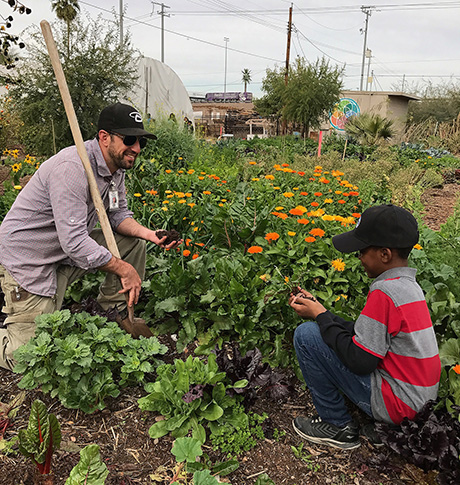
Selah, 11, said she loved learning about the eating healthy.
“Once you think about it and know what’s not good for you, you just want to change the way you eat. Everything looks different now when we go to the grocery store,” she says.
At the end of it all, Asiyah’s children provided over 350 volunteer hours in the farm, harvested over 400 pounds of food and completed 40 hours of classroom time. A graduation ceremony was held at St. Vincent de Paul to celebrate their Junior Master Gardener status.
While the children are still volunteering at the farm, Chanika is currently working on a second curriculum level for them and planning another level one program for new students.
“I love seeing the reaction on students’ faces when they find out how something grows. The fact that they have a more intimate relationship with their food now and seeing their faces when they’ve seen something grow that they planted themselves, is so rewarding. That’s the best part about it.”
